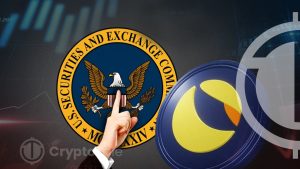
A federal judge in New York has denied the SEC’s request to speed up its lawsuit against the Tron Foundation and Justin Sun. The decision halts the SEC’s efforts to resolve procedural issues early in the case and marks a setback to the regulator. This case unfolds in the U.S. District Court for the Southern District of New York.
SEC’s Motion Rejected
The SEC aimed to organize a pre-trial conference or mandate an extra filing. They accused Tron of unexpectedly introducing new arguments in their defense. According to the SEC, Tron argued that TRX and BTT sales did not meet the ‘common enterprise’ criterion. The Howey Test uses this criterion to determine if a transaction qualifies as an investment contract. The SEC argued that this defense appeared only after Tron had moved to dismiss the case on May 30.
Arguments Over the Howey Test
The SEC filed for a pre-trial conference and permission to file additional responses. It targeted Justin Sun, the BitTorrent Foundation, and Rainberry Inc. The agency claimed the defendants had shifted their legal strategy. This concerns the ‘common enterprise’ element of the Howey Test, used by U.S. securities laws to identify investment contracts.
The SEC requested to either dismiss this new argument or to allow them to submit a supplemental reply about it. The judge, however, rejected these requests, finding no basis for the SEC’s claims of a shifted argument regarding the Howey Test’s ‘common enterprise’ element.
Defense Strategy and Jurisdiction Questions
Tron’s legal team countered by stating the SEC had created a dispute where none existed. They emphasized their defense was rooted in the Howey Test’s third element, focusing on the expectation of profits from others’ efforts. They argued against the SEC’s demand for more documents, suggesting it would only add confusion.
Justin Sun Predicts Billion-Dollar Memecoin Amid Tron’s RiseFurthermore, Tron’s lawyers argued that the SEC had no jurisdiction over the case. They noted that TRX and BTT token sales mainly occurred outside the U.S., targeting foreign markets. Despite the SEC’s April claims linking Justin Sun’s U.S. travels to jurisdiction over the case, Tron maintained these transactions were beyond U.S. legal boundaries.
This ongoing legal battle unfolds, with each party firm in its stance. The court’s recent decision marks a significant moment in the case, favoring Tron and Justin Sun against the SEC’s aggressive legal strategies.














